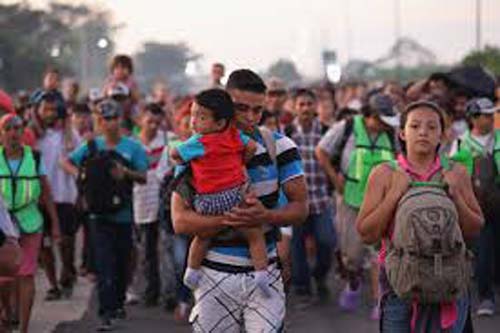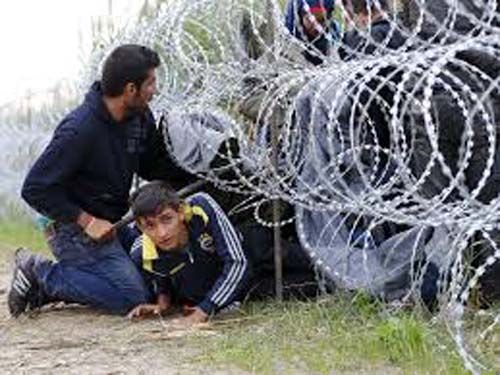
Why migrants will always seek a better life
Alistair Burt
While alternately fascinating or appalling — and nothing illustrates this more than the nail-biting presidential election — there is always a risk that the US is ultimately distracting, giving the rest of the world an excuse either not to do things or to delay matters that need our attention and action.
Migration is one of those issues that intermittently occupies front pages in the West, though not for long, while the underlying pressures which bring it to the top of the news agenda go unresolved.

It is five years since the picture of a young boy, Aylan Kurdi, lying lifeless on a Mediterranean beach focused the attention of millions on the plight of those trying to cross dangerous waters for a better life, putting themselves in the hands of criminals for whom life is even cheaper than it so often is in the places refugees are attempting to flee. “Something must be done” was the cry, as so often, but the driving force of change in the form of media attention can be guaranteed never to last for long, allowing the issue to slip back into the shadows.
In the UK, concern reappeared last week with the story of the Kurdish-Iranian family of five, including three children, who drowned in the English Channel. The British are completely schizophrenic about the migration issue. On the one hand, right-wing newspapers portray the country as overrun by those trying to “storm” the Channel, when the numbers are incomparably small compared with those crossing the Mediterranean. However, when a tragedy occurs, the same papers largely reflect the sympathy of a people moved by the human consequences of what has taken place. These reactions are not unique to the UK, and prompt the alternate remedies of higher barriers and efforts to deter those fleeing, or the easing of legal restrictions to make such journeys unnecessary.
But the media attention swiftly moves on, nothing effective is done, and we wait for the next flurry of attention. I wish one remedy or another provided the answer, but neither does. Increasingly outlandish ideas of deterrence worldwide, such as a wall, fence, or a bristling border where guards shoot to kill, solve nothing, merely pushing the problem on to someone else’s doorstep.
This suits some. If another country is now the destination, the local political issue is solved for a government, which is often enough for its purposes. Look at the pain of Italy and Greece, the destinations of those seeking the shortest routes to Europe from North Africa, or the Levant. They have overcrowded camps full of the miserable, but there has been no answer to the long-term issue of why the migrants have come, whose responsibility they might be, or where they might go.
Those arguing for more legal routes have justice and mercy for those fleeing on their side, though not usually for the rights of a host state, but this only resolves the issue for those who succeed. If a process has any conditions applied to migration and the right to change abode, then there must inevitably be those who will fail such a test. What will they do? They will try to move illegally, as they do now.
Increasingly outlandish ideas of deterrence worldwide, such as a wall, fence, or a bristling border where guards shoot to kill, solve nothing.
There are better, but more difficult, answers. The first is to take on the criminals who facilitate movement, often extracting more human misery in the form of abuse and murder on the journey. It is not unreasonable to suggest that an international military force roots them out, knowing that only significant resources will deter those behind the billion-dollar trade, and that lives will be lost in the process. Present piecemeal efforts — expecting national forces in countries most affected to bear the load — are insufficient.
The second is to recommit to efforts behind the UN Global Compact for Migration in order to persuade those reluctant to act together that the cost of not doing so will become overwhelming.
The third is to acknowledge that the driving forces — increasingly climate change and man-made conflicts — are what the international community is there to resolve. UN appeals on both issues fall on unwilling ears too often. People are no longer willing to wait in camps in war-torn countries or see their families made destitute by matters over which they have no control.
They are going to walk, and keep walking for as long as they can, and they may not be planning to return. It is too late to decide what to do when they arrive at a land border or a sea.
Until they have no need to walk, the challenges of migration will continue and we will see more pictures. Sooner or later it will be the story that no longer disappears from the front page.
The writer is a former UK MP who has twice held ministerial positions in the Foreign and Commonwealth Office — as Parliamentary Under Secretary of State from 2010 to 2013 and as Minister of State for the Middle East from 2017 to 2019.
